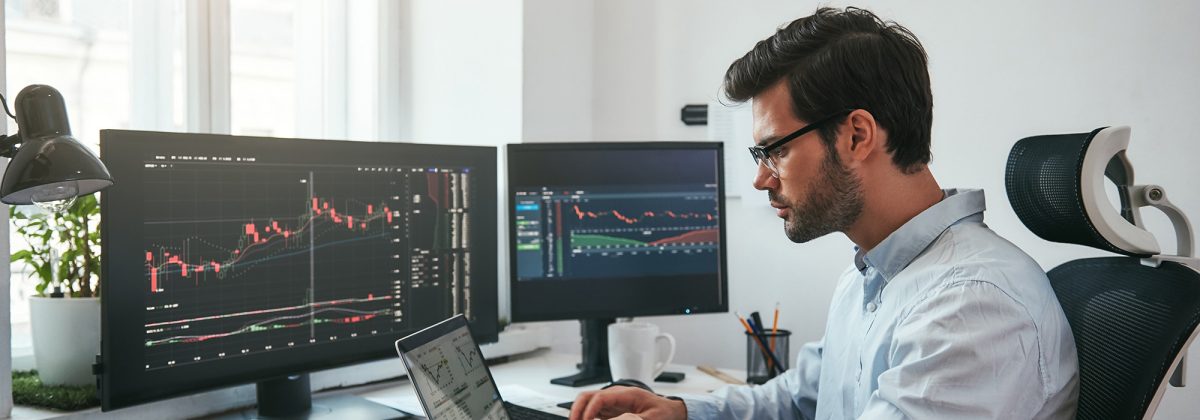Difference between Beginners and Professional Forex Traders

While there are certain universal traits common to all traders, beginners and professional forex traders do have different ways of participating in the market. Beginners may think that professional traders have access to some holy grail of information, which makes them adept at recognising trends and taking quick decisions. However, the difference actually lies in the level of experience. Professional traders have learnt how to tread the market through practise, trial and error, through the years. They have tried and tested many strategies, before finding ones that give them the desired results.
With a high level of expertise, professional traders are also adept at controlling their emotions, something a newbie might find hard to do. Here’s a look at how these two types of traders navigate the forex market.
Extensive Knowledge of the Market
One of the main reasons why beginners lose money in trading is their lack of knowledge. Professional traders truly understand how the forex market works. Whether they are technical or fundamental traders, newcomers need to understand every aspect of the market well to build a successful long-term career. This includes learning about trading strategies, knowing when to enter and exit the market and understanding the impact of economic releases.
Differentiating Important Events from the Not-So-Important Ones
While information is freely available, the way it is used is also something to be learned over the years. Beginners and experts both understand the importance of monetary and political events for currency price movements. But, what is done with that information separates experts from the rest. While beginners might choose to place small trades throughout the day, experienced traders might focus on key trading times. For instance, high-frequency traders often avoid the mid-sessions to concentrate on the opening and closing minutes, following an important news release. Also, not every release is a market moving event. It is important to distinguish between them.
Acquiring Emotional Discipline
New traders are often in a rush to beat the market, chase trends and win big. They might have a tendency to become overconfident after a few successes, ending up over-trading or getting into unnecessarily high leverages. In short, they let their emotions take control of their trading decisions. This could result in magnified losses. Most successful traders in history have confessed to falling prey to emotions. Many have learnt the importance of patience and discipline in trading, the hard way.
Emotional discipline, along with adequate risk management measures, is essential for successful trading. Experienced traders take years to master a strategy and could decide to stick to it for a long time. That doesn’t mean they don’t test new strategies. Rather, they practise various strategies again and again on demo accounts, where they don’t need to risk actual capital to try out strategies. Inculcating patience and discipline to see your strategies play through is easier said than done. New traders are understandably hounded by fears of missing out on trading opportunities. It takes time to develop these skills.
Choice of Instruments
Beginners usually prefer major currency pairs like the EUR/USD or GBP/USD, where liquidity risk tends to be low. These are heavily traded currencies, which means spreads are tighter and the risk of slippage is lower than for most other forex pairs.
Some professional traders like to trade cross-currency pairs and minors, like the USD/TRY or AUD/JPY. For instance, carry trades are quite popular for expert traders. Here, traders try to capture the interest rate differentials between two countries. The AUD/JPY is a common carry-trade instrument, where the Australian Dollar has a higher interest rate than the Japanese Yen. Cross-currency pair trading can be risky, since it commonly includes emerging market currencies, which tend to be plagued by geo-political instabilities.
Another aspect is to understand the correlations between currencies and other assets, like precious metals and crude oil. Such knowledge equips traders to make sound decisions.
Risk Management Tactics
Trading the financial markets is risky. While a new trader might fear it, experienced ones understand and accept it, and deploy strategies to manage risk. Professionals have long accepted that risk is an integral part of their job, so they make decisions accordingly. This includes everything from their choice of instruments to lot sizes, execution modes, trading hours, leverage ratio and positioning of stop-losses.
So, they have already factored in the risk, and do not think twice when the system tells them to enter and exit a position. Again, the aspect of emotional discipline is crucial here. This is why many amateurs are hesitant to enter trades in the first place, out of fear of risk. Another aspect here is that experienced traders’ risk-reward profile does not depend on the outcomes of previous trades. For instance, they do not become risk-averse after a few losing trades or become overconfident after a string of wins.
Expertise to Fathom Chart Action
Deciphering price action on forex charts takes a while to master. New traders are often overwhelmed by the technical indicators. When too many of them are used simultaneously, they can give contradictory signals. Firstly, newcomers need to learn to read raw price action on the charts, if they seek long-term trading success. Through various resources, they can understand how to identify trends, what particular chart patterns mean, which timeframes to rely upon, what to infer from candlesticks and more. Through continuous dedication, they can learn the science of technical analysis like a pro. They can then consider using advanced indicators.
Not all newcomers can advance to become professional traders. This is because the forex market is hounded by the myth that money can be made easily. Forex trading requires perseverance, dedication and a learning mindset. At the same time, it isn’t that professional traders never face losses or make mistakes. It is how they deal with adversities that makes them stand apart. They seek to learn from losses and adopt ways to not repeat mistakes. This is why you might find many professionals using a trading journal system, where they record their strategies and reasons to implement them. In case of losses, they can find out the exact cause of failure.
Lastly, the importance of a good trading terminal is appreciated by a professional trader. Without speed and robust trading tools, they cannot pursue a sustainable career in the forex market. Today, professional traders prefer multi-device accessibility, so that they can buy and sell currency pairs even on the go. This is also vital to monitor the forex market in real-time.
Reference Links
- https://www.thebalance.com/how-to-learn-trading-and-become-a-professional-trader-1031088
- https://www.investopedia.com/articles/forex/09/5-important-forex-attributes.asp
- https://seekingalpha.com/article/4165836-3-crucial-differences-professional-traders-vs-retail-traders







